Vigils, Shutdowns, and Crocodiles: Week ending Friday the 14th of November
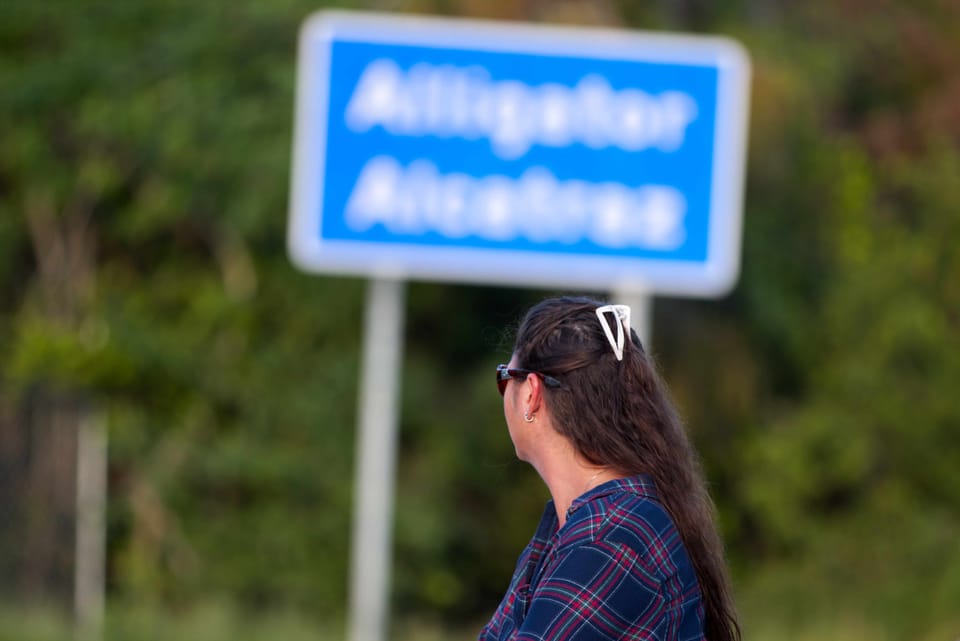
Prayer vigils calling for humane treatment of immigrants popped up in multiple places this week, the shutdown ended so, among other things, the National Park Rangers (many of whom live in the park) got to go back to work, and I found an interesting story about how good nature is for our health...right when I was out on a mental health day with my kid in the Everglades.
So, let's jump into this week. A smaller disappointment section as I'm just plain tired and a longer infinite hope section because I need more of it because the Florida Gonna Florida section is...insert face palm emoji.
Table of Contents
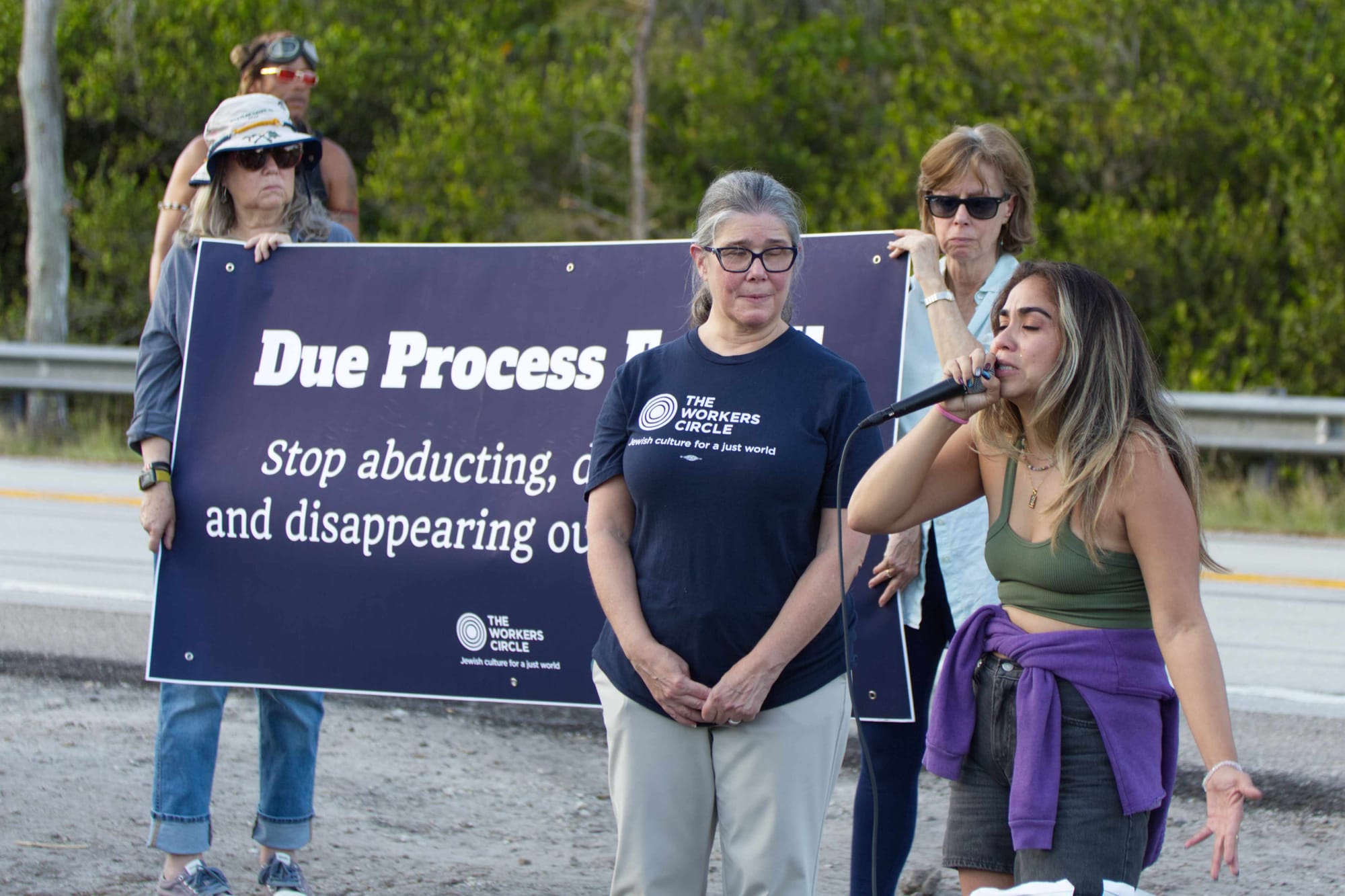
Finite
Disappointment
In the picture above this section Arianne Betancourt, whose father is detained in the South Florida Detention Center, commonly known by its racist nickname, Alligator Alcatraz, cries as she talks about how her father is being treated.
He has diabetes.
According to his daughter, Betancourt, he has been denied his medications but told if he lets them send him to Mexico he will get his meds when he arrives.
He has diabetes and it is not being treated so he is sick.
They have him, according to Betancourt, strapped to a medical bed in the infirmary and when he asked to be sent back to the general population they added restraints.
I decided this week's vigil warranted a special coverage piece on this site so I wrote one. Please check it out.
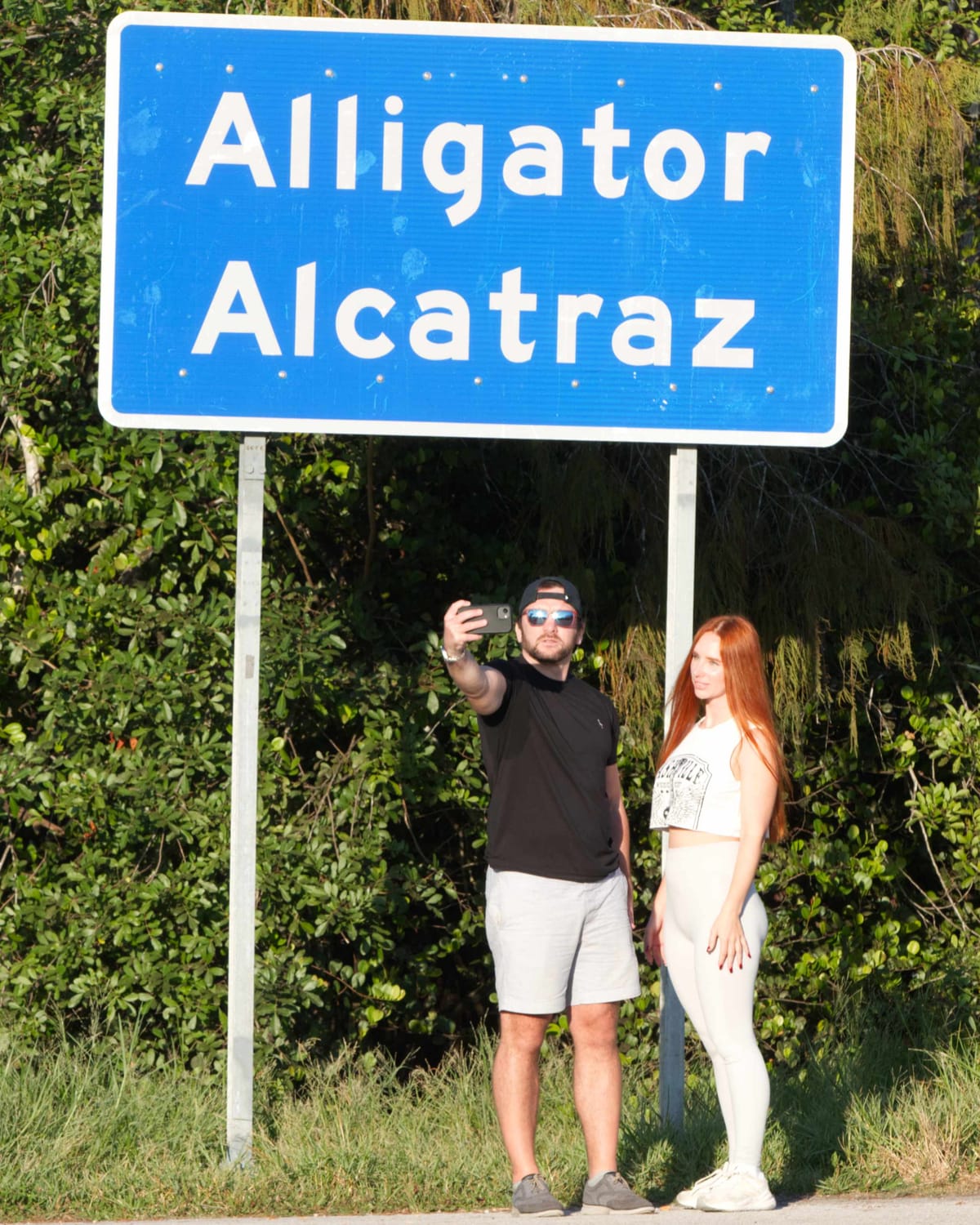
Florida
Gonna Florida
The same week John Oliver's award winning team put together an amazing story on the dangers to the public of police chases and how they are utterly unnecessary,* Florida Highway Patrol officers gave chase to a 22 year old who had been street racing. They did, wisely, give up the chase (that they unwisely began) but only after attempting to perform an incredibly dangerous PIT maneuver to intentionally wreck the suspect's car. The police eventually gave up as the suspect headed into a more populated area. The fleeing suspect nevertheless crashed into a street crowded with diners and killed four human beings and injuring 11 more.
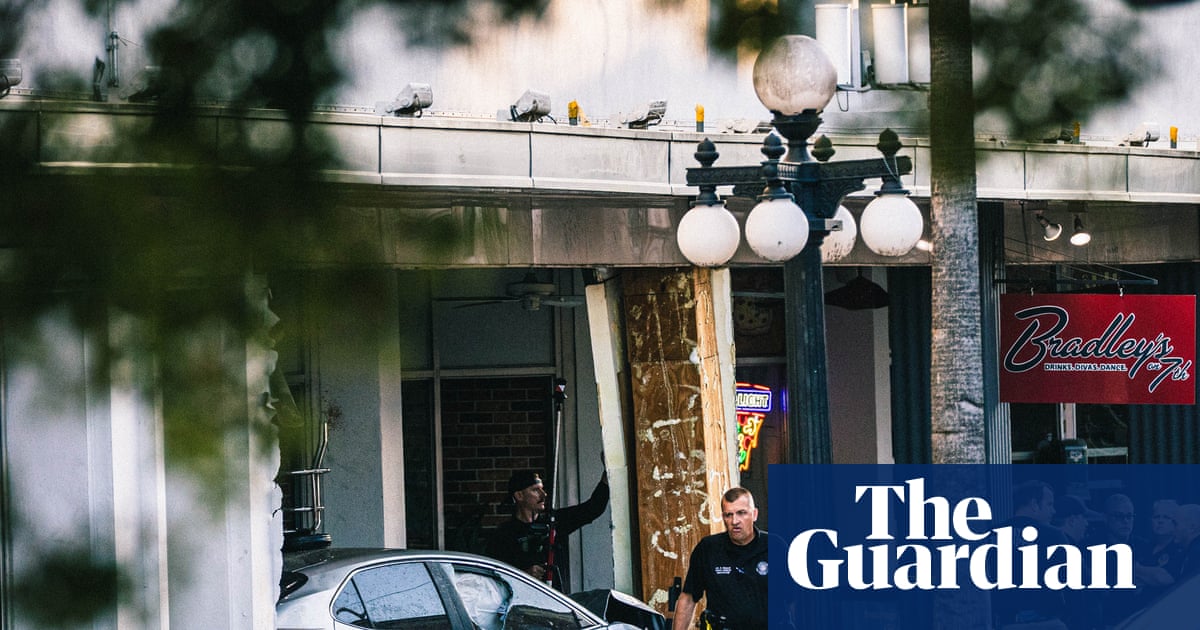
Florida law, unlike many states, still allows for these highly dangerous chases to occur. Florida law, unlike many states, also requires people involved in relatively minor car accidents to call law enforcement. Which is why the armed sheriff's deputy showed up to a minor traffic accident this week near my kid's school and was subsequently murdered with his own gun.
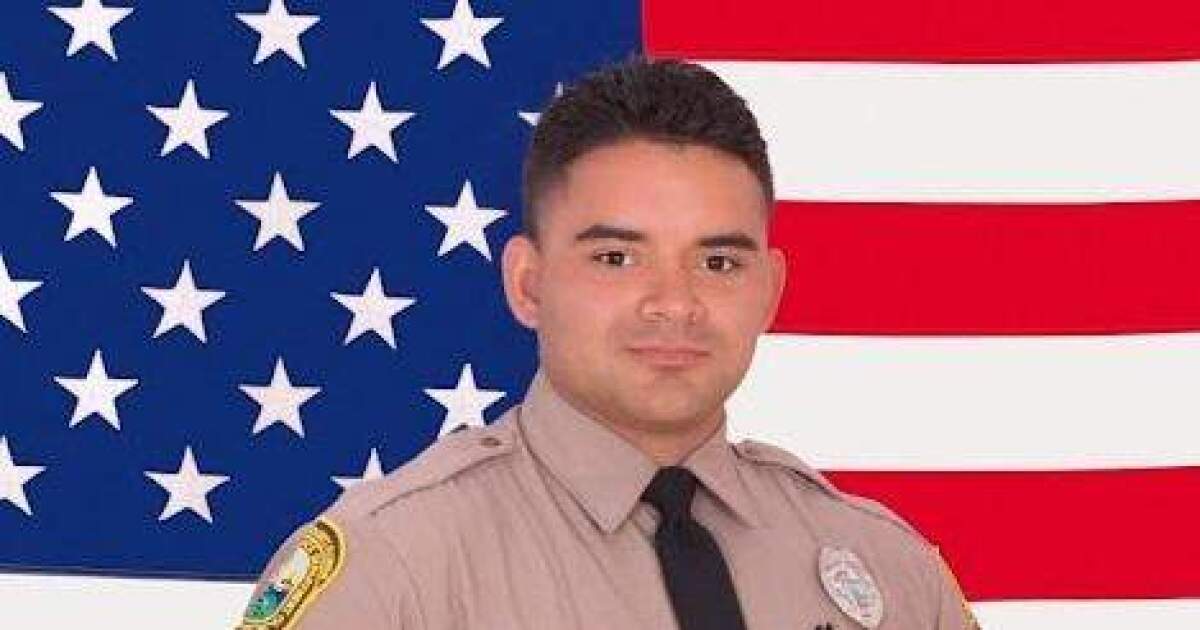
While Miami-Dade Sheriff Rosie Cordero-Stutz acknowledged that Deputy Devin Jaramillo was not ambushed, she did tell the press "Deputy Jaramillo’s killing is a stark reminder of the dangers faced by every individual who wears the badge and the sacrifices these officers make to protect this community,' she added. "His family is in my prayers.”
I wonder if she would welcome changes to the law that required Deputy Jaramillo to be there in the first place to inject a person with a gun into a minor traffic accident?
I don't suggest this lightly. If, say the awesome team assisting drivers on the Turnpike, the Road Rangers, had shown up to this minor traffic accident instead of Deputy Jaramillo, and things got tense, the Road Rangers would have notified law enforcement who would have sent more than one deputy to assist and those deputies would be ready for a confrontation. And he'd be alive today.
Remember, Deputy Jaramillo brought the gun, not the person who ended up murdering the deputy with the gun. Had there been no deputy at this minor traffic accident there would have been no gun.
I mourn for his loss and his family as I mourn for the families of the victims of the senseless, preventable accident in Tampa. I hope that Florida will take these unnecessary deaths and follow much of the country in keeping our officers and our public safe.
*With the most extensive tollway system in the country (mostly if not entirely camera enforced now) and with one of the most extensive red light and speed camera systems in the country, where was the speeding driver going to go that the cops couldn't easily follow at a safe speed? What's more, the speeder was initially identified by a police helicopter that started tracking him. A high speed chase was entirely unwarranted.
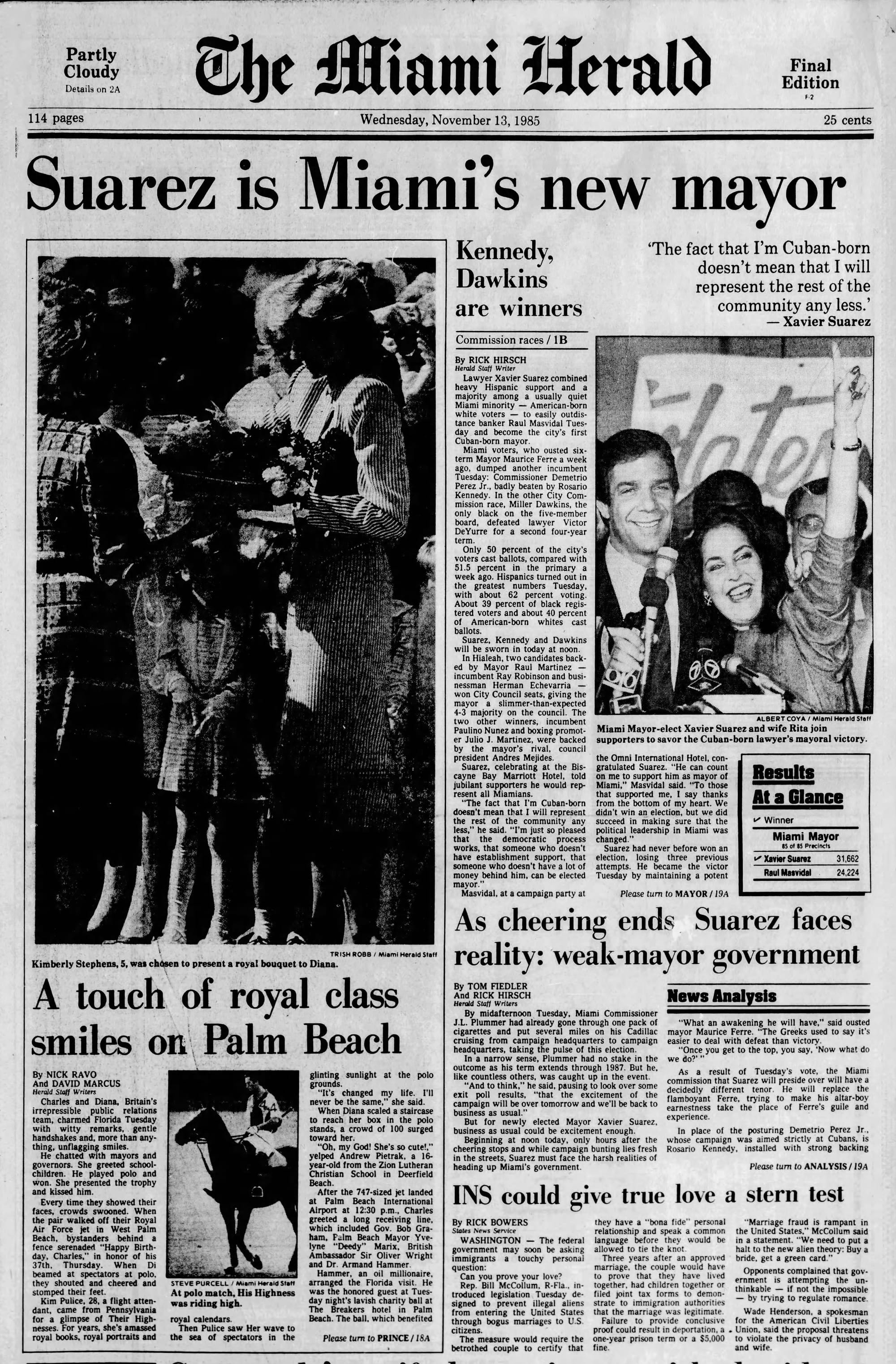
Historic
Interlude
40 years ago this week one future king of England visited South Florida, with his wife, who he admitted was more popular than him, and another won his first mayoral election in the city of Miami.
OK, so the latter wasn't a king, but it was Xavier Suarez who would dominate Miami politics for decades despite winning a seat in a "weak mayor" city council.
But Prince Charles, then married to "Is [she] pregnant? We didn't Ask." Princess Di, according to humorist and columnist Dave Barry in the Miami Herald on November 13, 1985, did visit South Florida. This of course meant a trip to the polo grounds in wherever but Wellington, Florida, much to the dismay of the British press, which dismissed the vaunted country club as "incredibly vulgar, a monument to bad taste."
"They're selling champagne around the corner, and hot dogs right near it," the Herald told readers in a piece called "Palm Beach strikes out with press."
Palm Beach County being what it is, even then, another British writer said at the time, "I'm going to write, 'People here are so rich that when they see Dallas (the then popular prime time soap opera depicted the rise the upper class of the eponymous city in Texas ) on TV, they think it's a hard-hitting documentary about the poor in America.'"
Perhaps little has changed in PBC or Miami, where Xavier Suarez was defeated in an attempt to be elected, again, to the top job in Miami just this month, prompting one author in the Herald to declare, "Political dynasties flop."
At least Prince Charles of Edinburgh now King Charles III landed on his feet, remarried, ascended to the thrown, and squabbling with his accused sex offender brother, the pedophile formerly known as Prince, Andrew Albert Christian Edward Mountbatten-Windsor, over the deceased royal mum's dogs.
We historians say history doesn't repeat but it rhymes, and I guess sometimes that sentiment is challenged more fiercely than others.
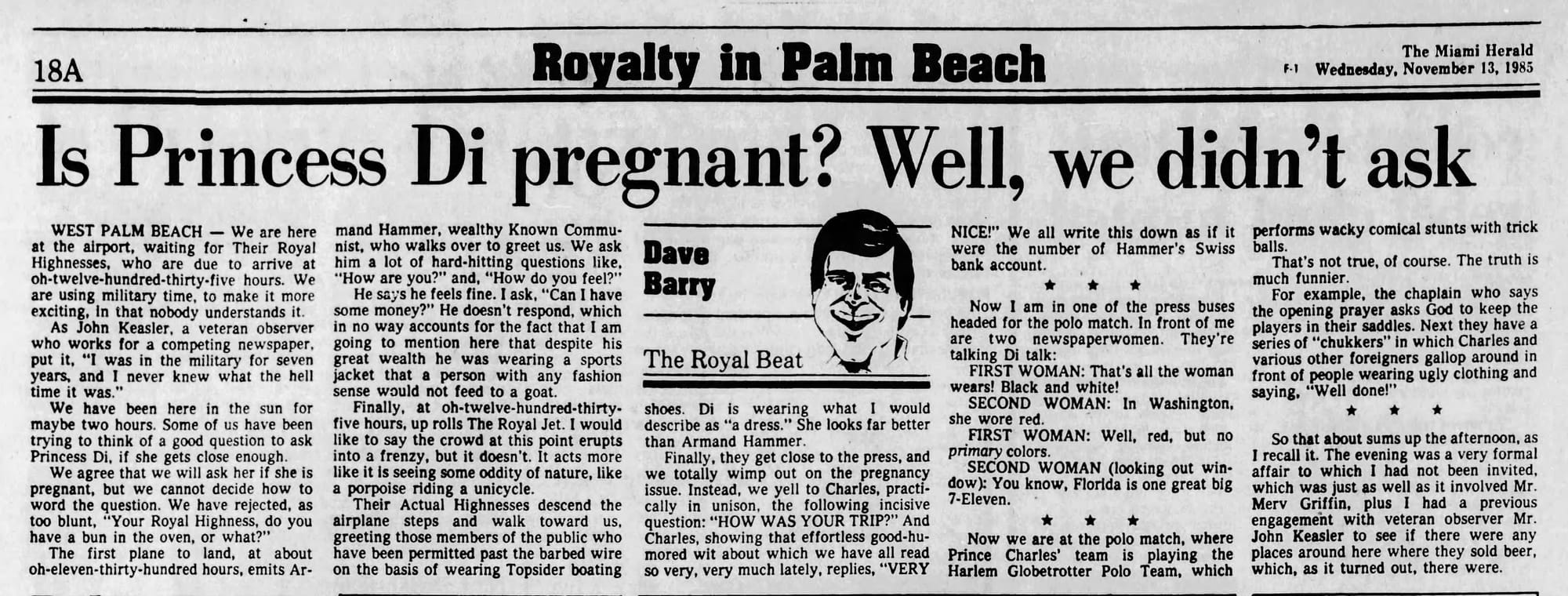
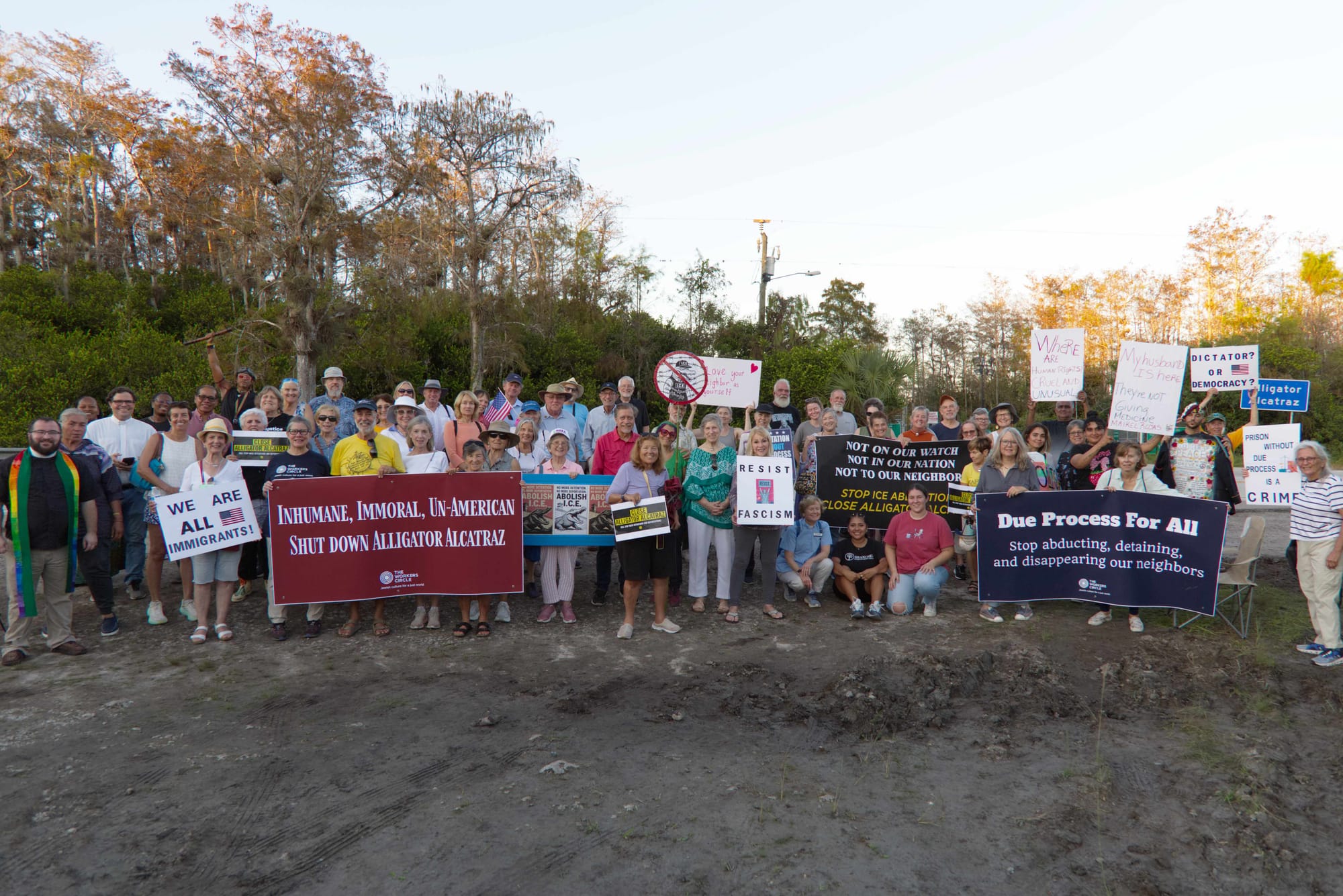
Infinite
Hope
Prayer Vigils Continue, not just at the South Florida Detention Center
While looking for other stories I heard this week, I found a story on a prayer vigil that I didn't even know about in Downtown Miami. This one wasn't as interfaith as the ones held outside of Alligator Alcatraz (they said the Lord's Prayer from the Christian New Testament at the Downtown Miami vigil, something I don't think would happen at the interfaith vigils in the 'glades) but it was still neighbors standing up for their neighbors and longtime readers know TWIFL is here for that.
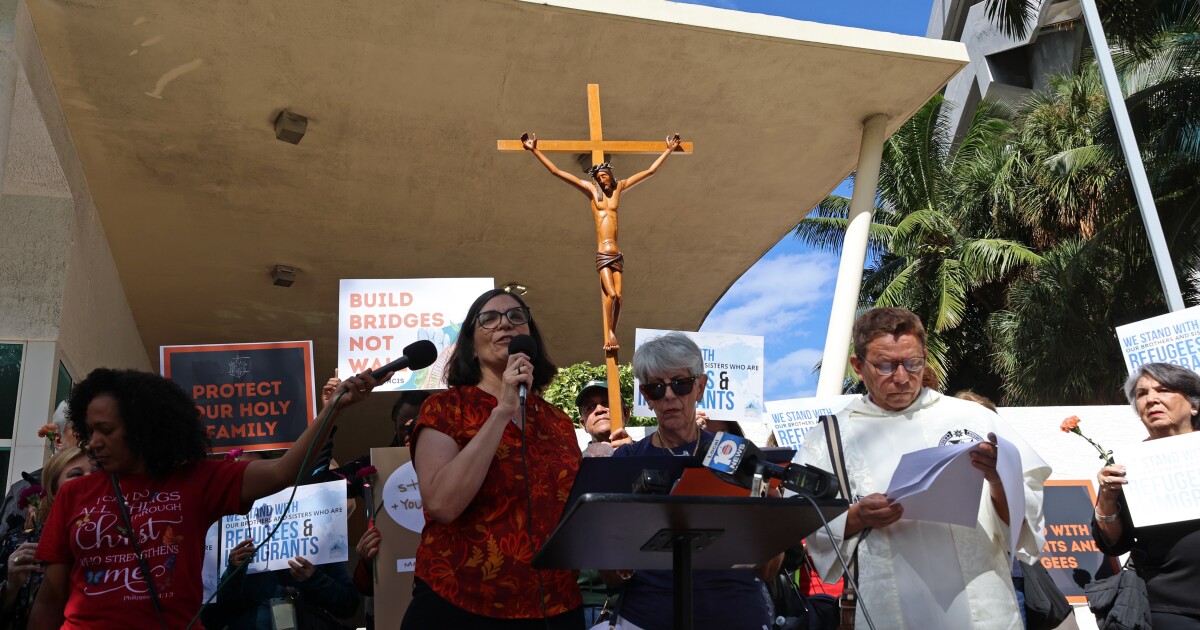
Meanwhile, the interfaith coalition assembled to pray for the people in and working in the South Florida Detention Center, held their fifteenth Sunday prayer vigil at the site, about one hour east of Miami and one hour west of Naples.
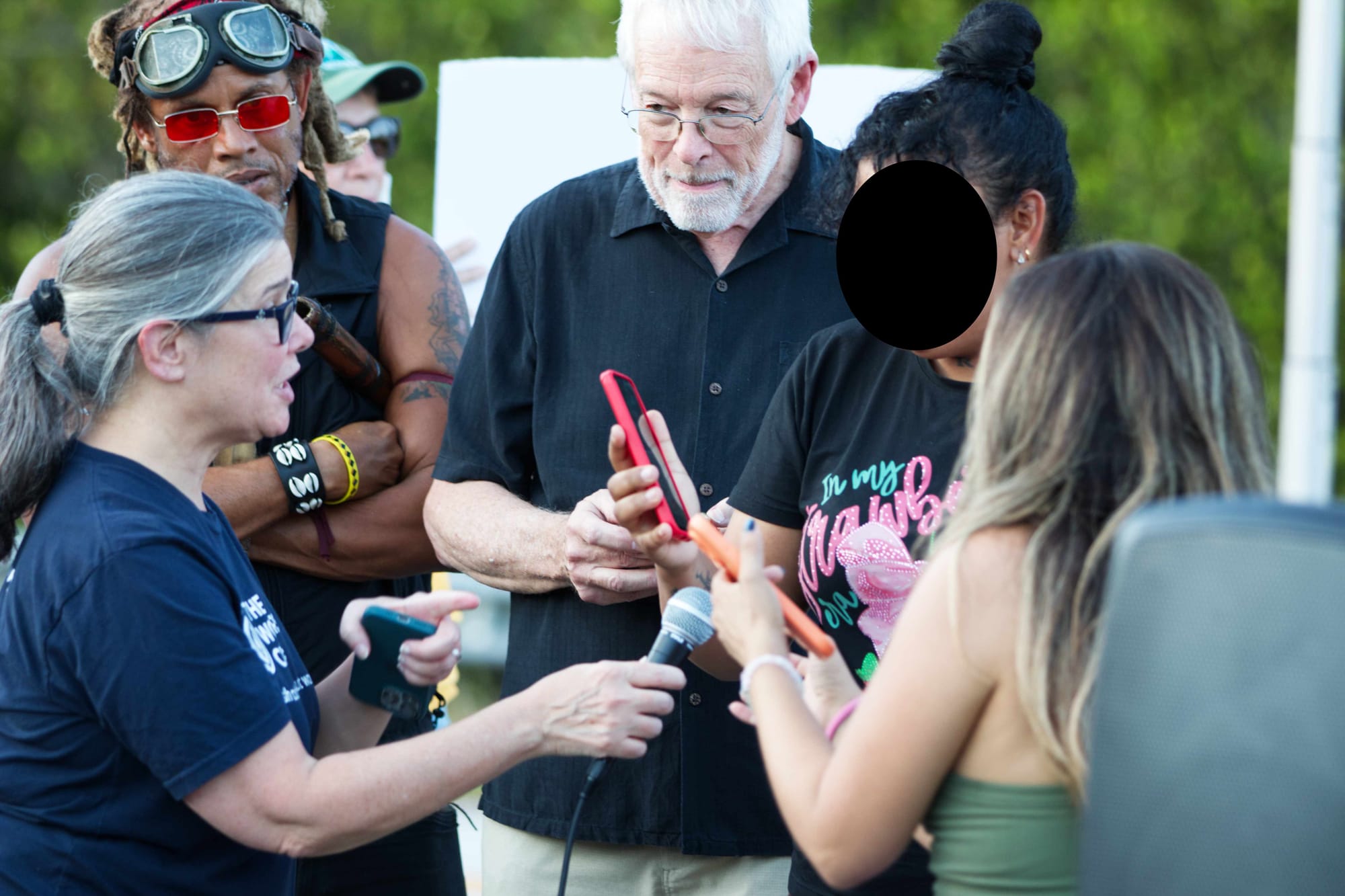
As mentioned above, I wrote a "Special Coverage" piece on this past week's prayer vigil across from the detention center in the Everglades and it isn't always hopeful out there. But there is always an undercurrent of this infinite hope stuff. A common refrain is something like, "I'm glad to know you, just not glad to have met you here, but I'll see you next week, unfortunately."
Neighbors helping neighbors is or more accurately, neighbors helping strangers who ask for shelter, as historians on ancient laws will tell you, kind of the first laws humans ever devised (the Ancient Greek concept of Xenia is an example). It is core to who we are as beings meant to live in community.
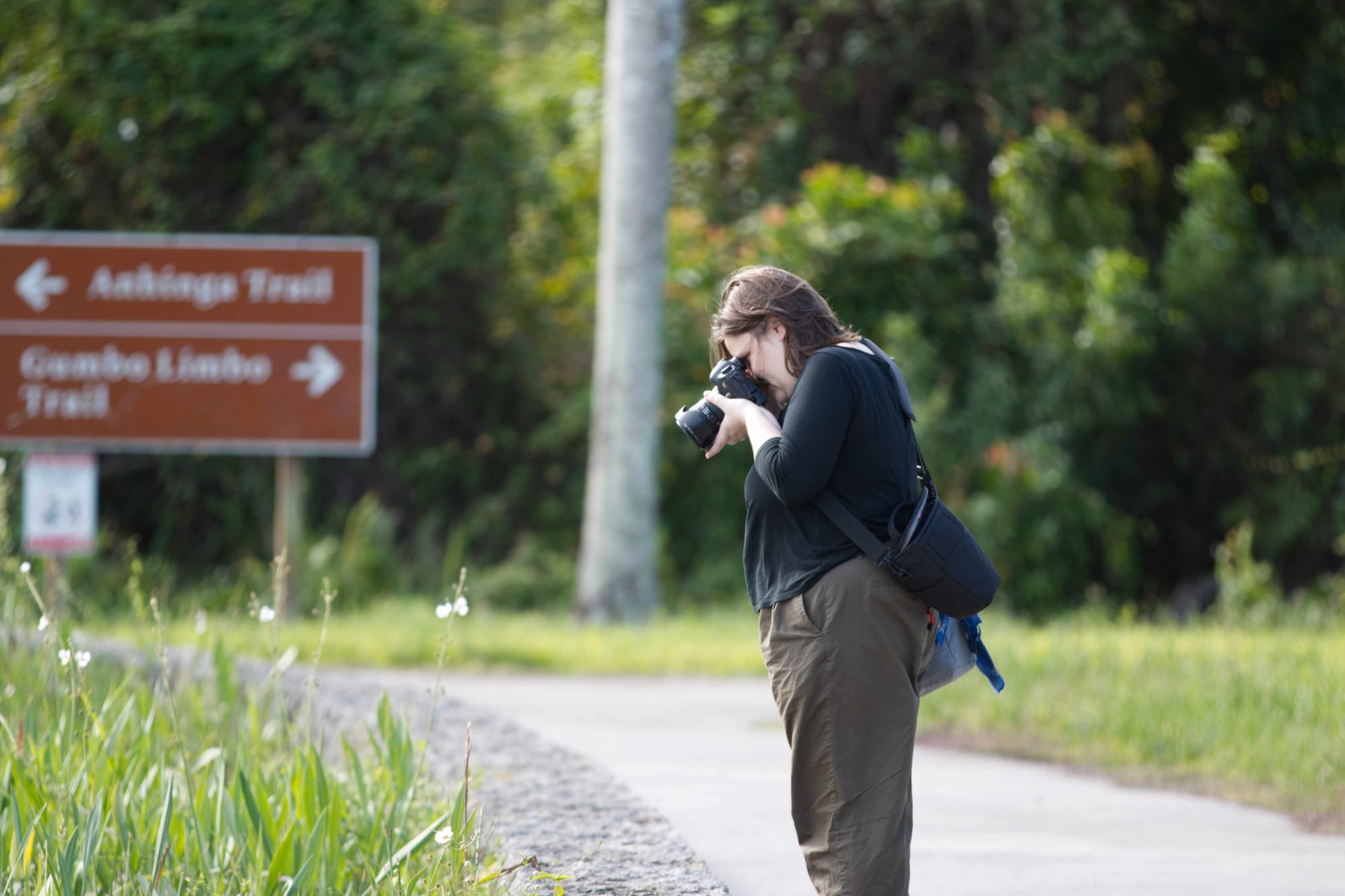
How Nature Heals Us
This weekend while I was driving to and fro I heard parts of a show on WLRN, the local NPR affiliate, from a show called Hidden Brain. While some readers may remember the days when Hidden Brain was an NPR show it is now a separate program. Anyway...Hidden Brain ran a show on November 3 that aired in Miami on WLRN this past weekend called "How Nature Heals Us."
Marc Berman, a psychologist at the University of Michigan who studies how spending time in nature can help our minds found that simply being out in nature improved cognition. One study he did looked at people's cognitive performance before and after taking walks in nature.
[I]t wasn't the case that just the people who loved the nature walk so much were the ones who showed the biggest improvement. And an even stronger demonstration of this is that we had participants walk at different times of the year. So some people walked in June when it was about 80 degrees Fahrenheit in Ann Arbor, Michigan, and participants said, Oh, Marc, I loved the walk. I can't believe you're paying me to go for a walk in nature. They showed really healthy mood improvements, and they also showed really healthy improvements to direct the tension as measured with this backwards digit span task. But we also had people walk in January when it was 25 degrees Fahrenheit, and participants said, Marc, I was freezing out there. I did not like that walk in nature, but those participants that walked in January showed the same cognitive improvement as the people that walked in June. So sort of the short answer is to get these cognitive benefits, you don't even need to enjoy the nature walk to get the benefit.
Anyway, my college student kid called me Wednesday night and begged me to take her to the Everglades for a mental health day the next morning. This kid was even willing to meet me at 8:00 AM at her dorm to hit the 'Glades, so I knew she was serious.
So, I picked her up at 8:00 AM and to the Everglades we went, it turns out, on the very first day the National Park Rangers were back on duty after weeks of being kept off duty (y'all realize some park rangers live in the parks, right?).
It was a good day. We didn't see many alligators and crocodiles but the ones we did see averaged at least 11 feet. Tourists from Ohio pointed to one specimen and said, "There's a big one right there!" usually, this common event is followed by me looking at the critter in question and shrugging and saying, "Nah, that's just a seven footer."
Indeed, that happened to us an hour later when different tourist pointed out a "huge crocodile" that my kid and I saw and said, "That's just Daphne, she's only seven feet." As if "only seven feet" is small.
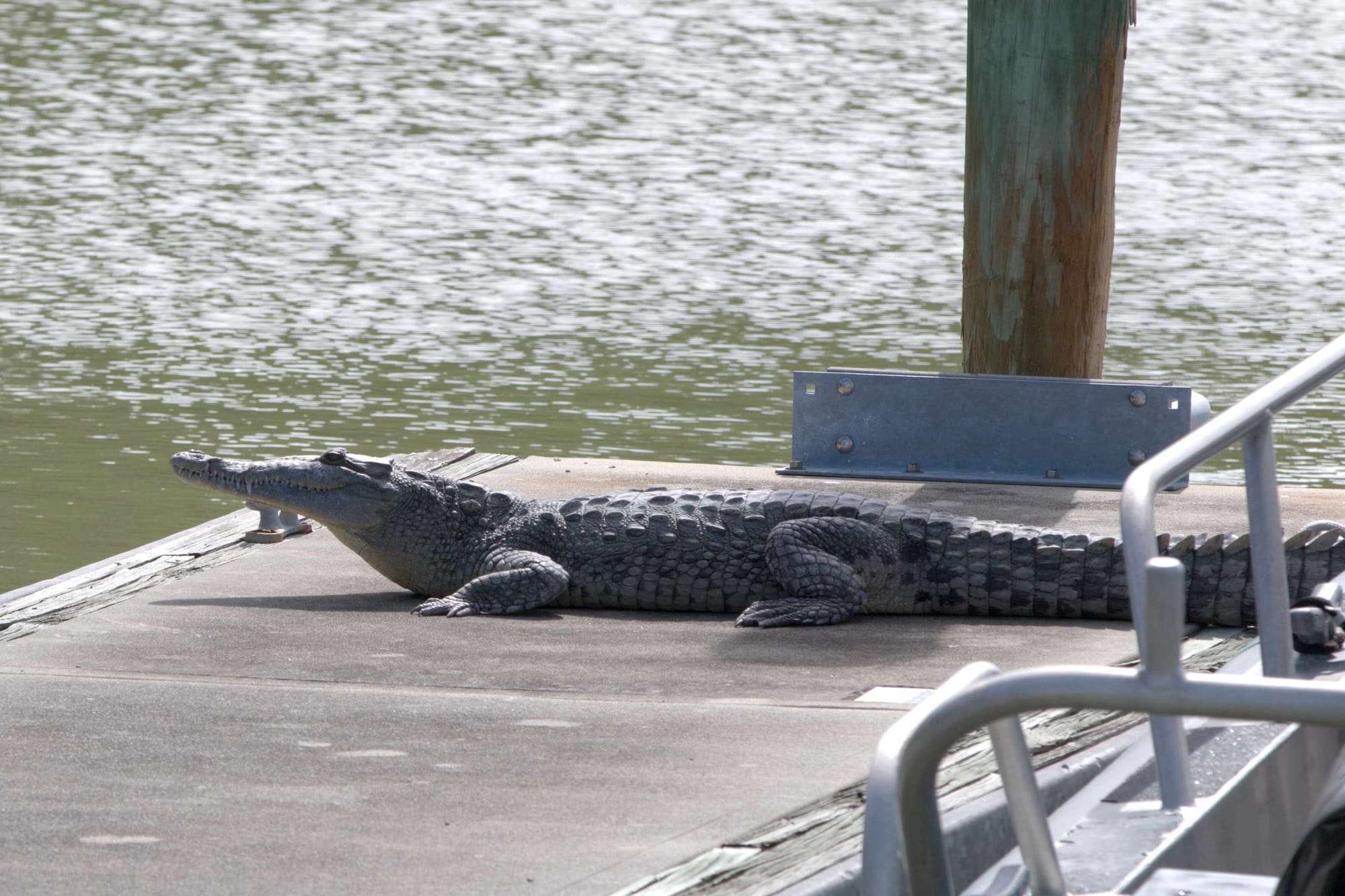
Her boyfriend Freddy, the 14 foot monster, was nearby. Yes, there was not one thing between me and him. But him only needs to eat every one to two years and I didn't try to pet him or dangle a fish snack in front of him so, though he could murder me easily he was really no threat to me or anyone else.
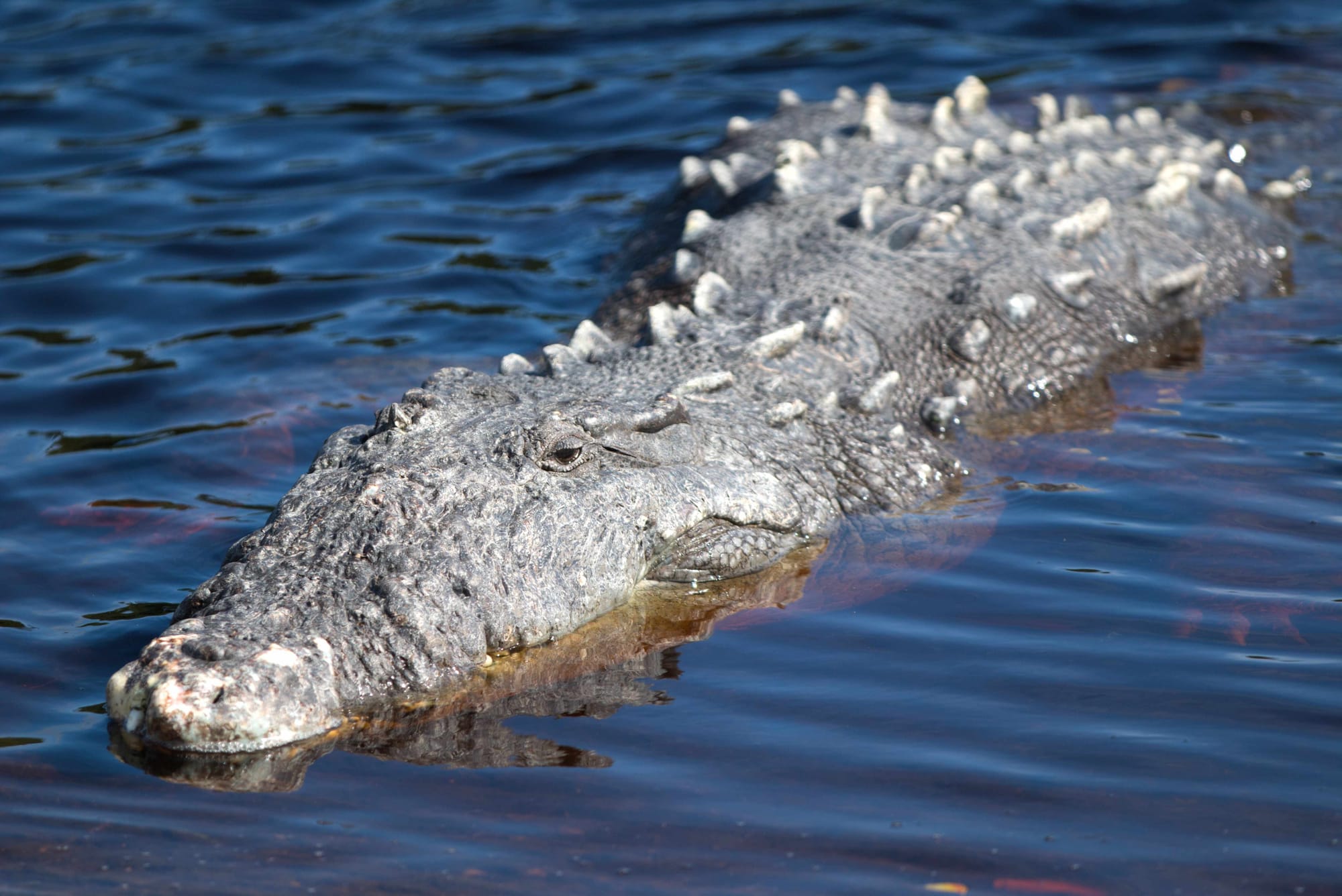
If you want proof of Daphne being smaller than Freddy, here's a picture I took in February of this year.
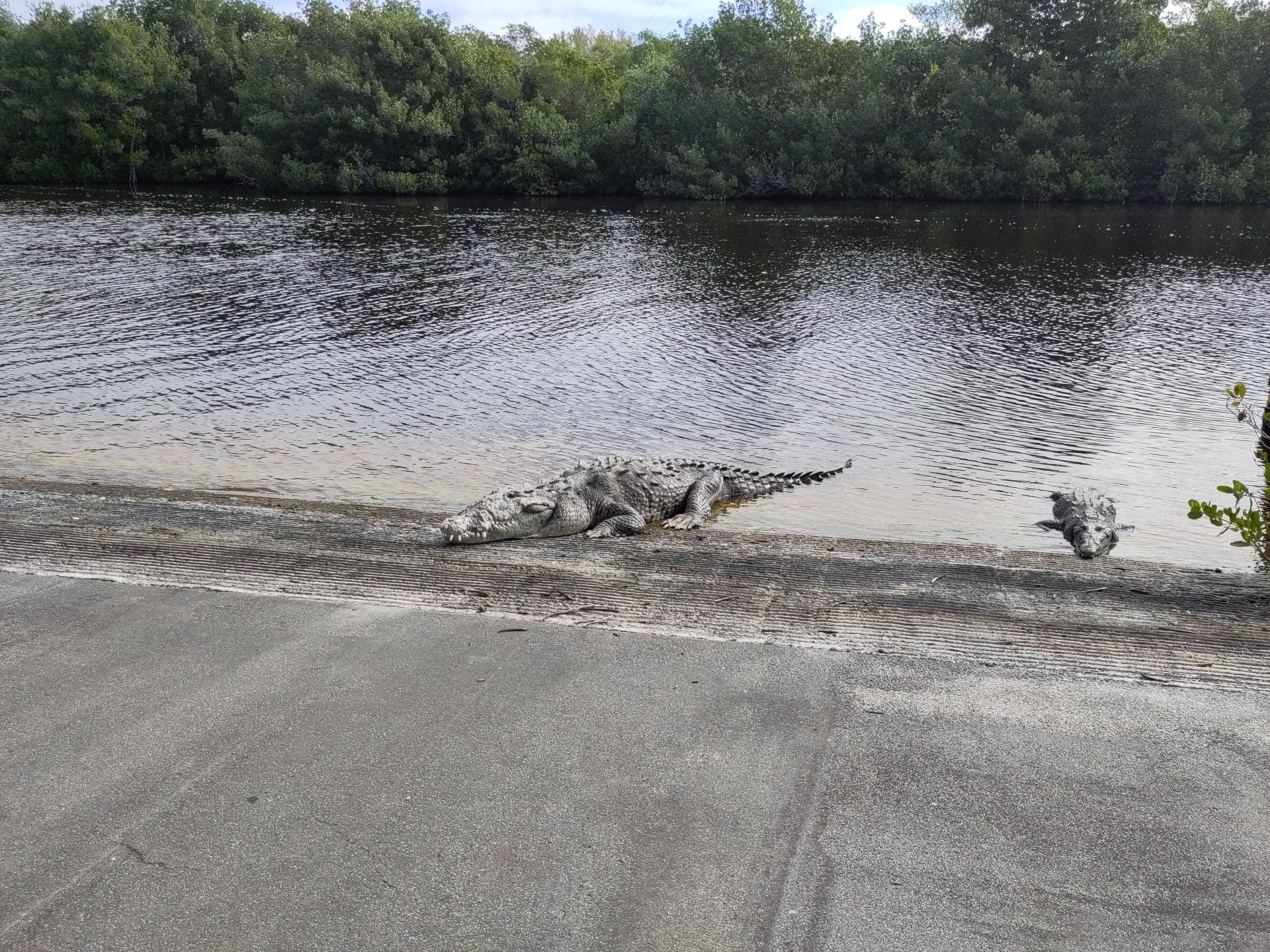
Of course Freddy isn't even in the top two biggest crocs of the Everglades. There's one named King I have yet to see and of course my good pal, Croczilla, who made an appearance for my kid and me on our nature walk. Croczilla is at least 16 feet and appears to be approximately old AF.
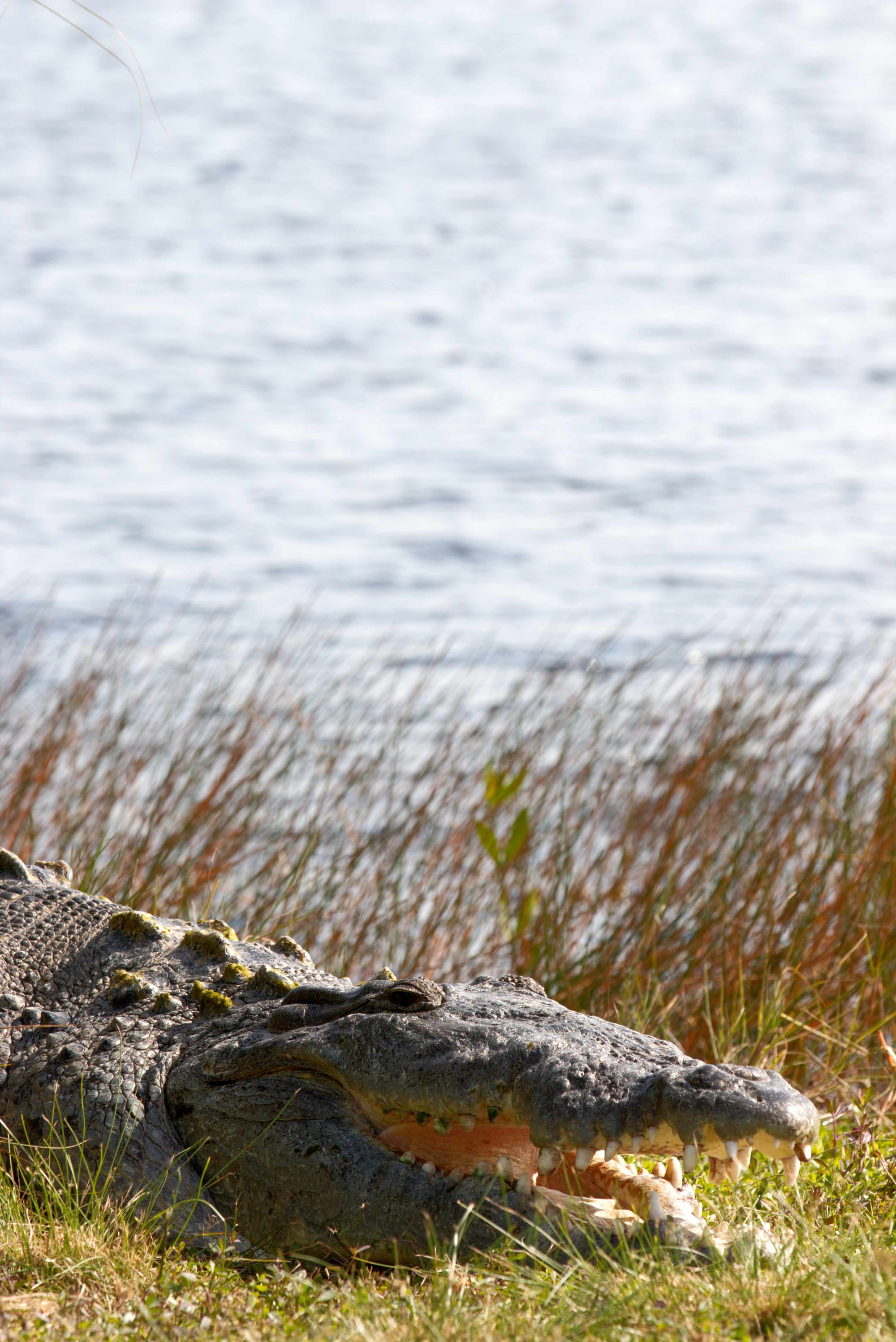
As much as my kid loves the crocs ("If they're not meant for snuggles why are they friend shaped," she likes to joke) she insisted the stars of the show Thursday were the egrets, both snowy and great.
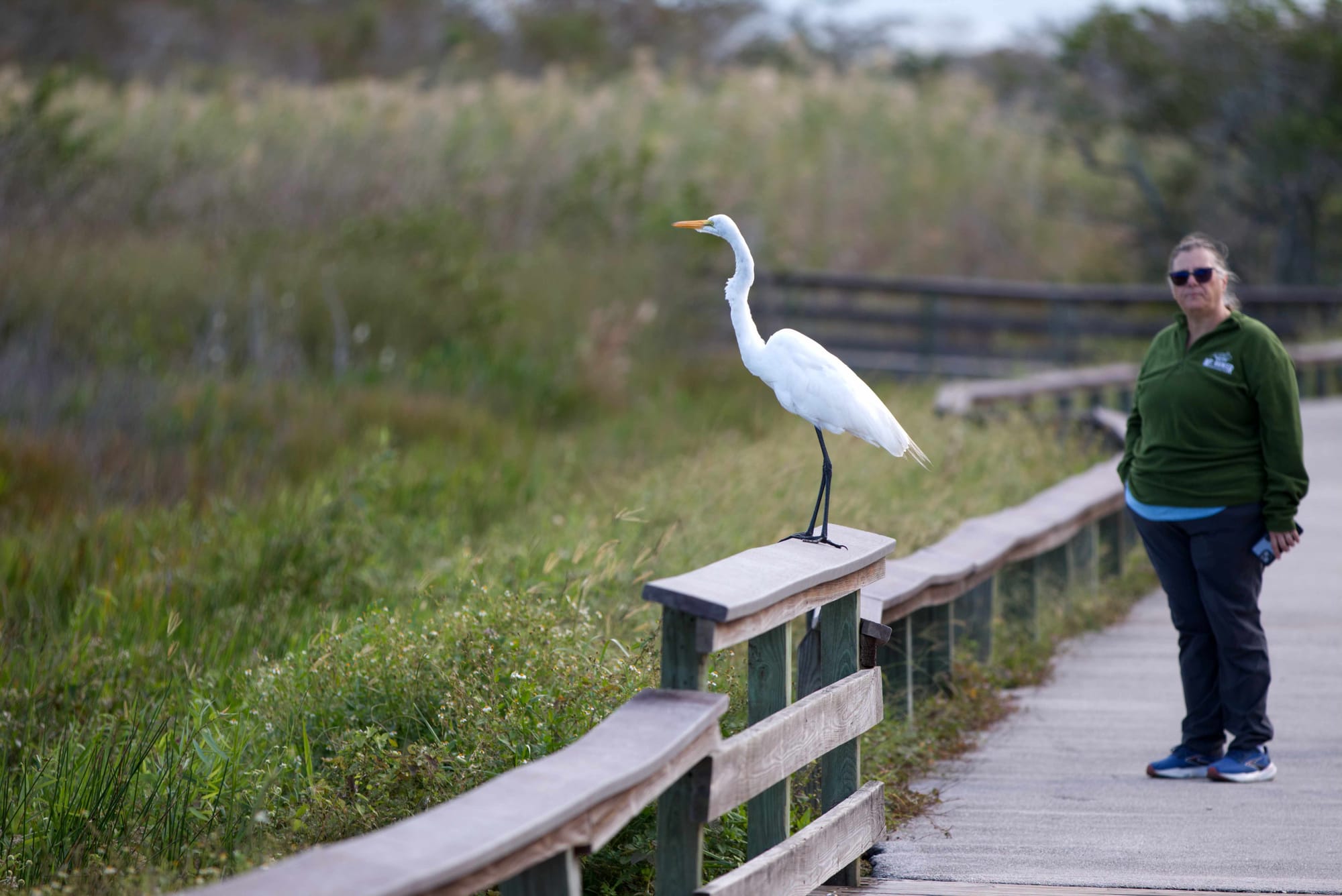
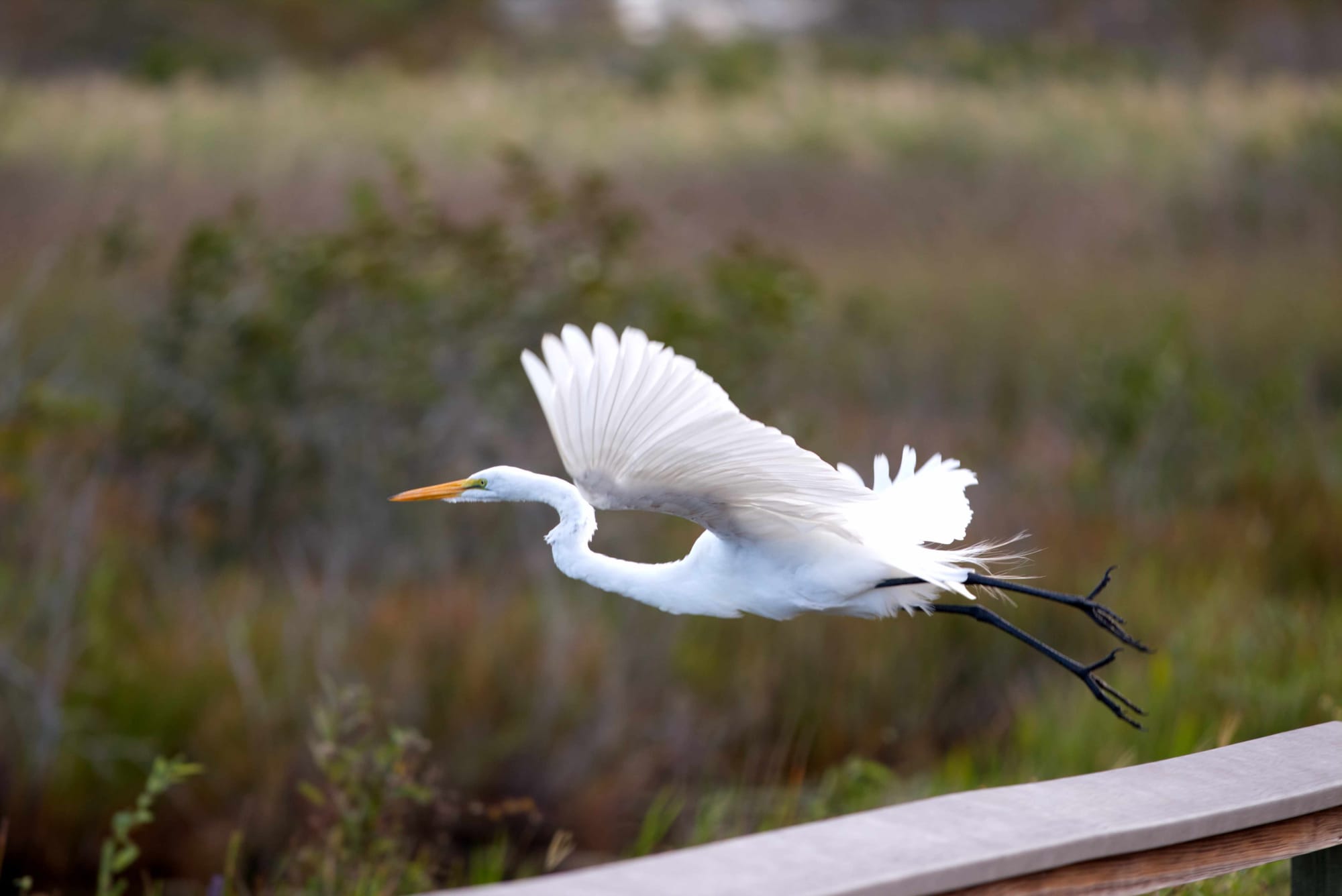
The tourist from Ohio who rightfully identified a 12 foot alligator as "huge" looks at a great white egret...just before the bird took flight. Photos credit Philip Cardella TWIFL Copyright 2025.
I highly recommend the Hidden Brain episode "How Nature Heals Us," but I'll admit, at 1 hour 13 minutes, it is a time commitment.
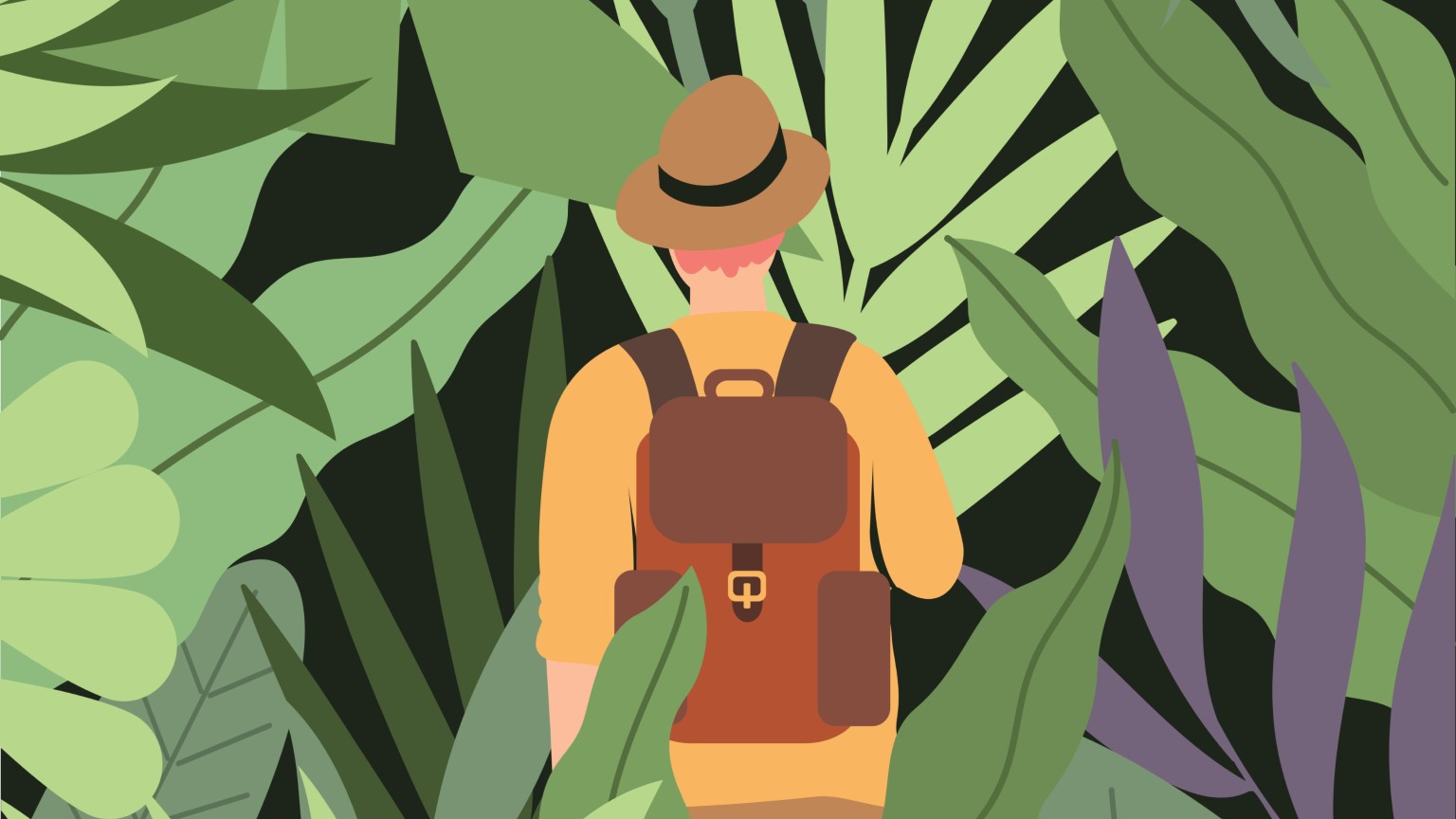
If that's too long you can listen to an interview with Marc Berman on his research from an interview on NPR's 1A from September 30, coincidentally the last day National Park Rangers were on duty before Thursday.
Or you can buy Dr. Berman's book:

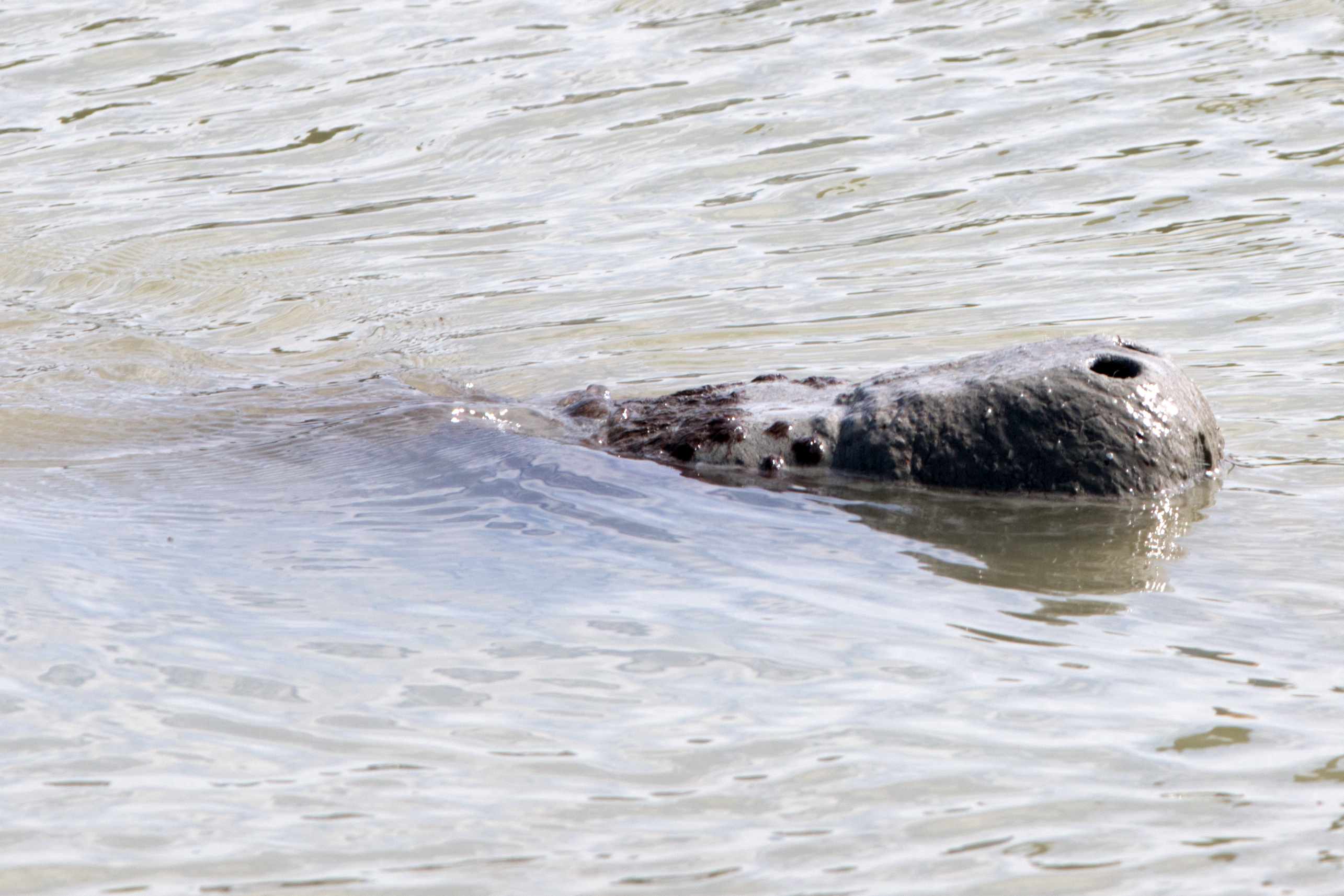
Bear
The History Hound Finds










